About Rotary
ROTARY INTERNATIONAL
Rotary is a non-religious, non-political, non-profit international non-governmental organization that unites leading business and professional individuals who are committed to promoting goodwill and peace around the world. Upholding high ethical standards, Rotarians deliver humanitarian service across every corner of the globe.
.jpg)

Rotary was founded on February 23, 1905, in Chicago, Illinois, USA, by Paul Harris and three of his friends. Their initiative not only symbolized a spirit of fellowship but also brought professional services to the residents of small towns and communities. Through this, Rotary became the first organization in the world to bring service directly into civil society.
Today, Rotary International operates actively in over 160 countries with more than 45,000 clubs and 1.4 million members worldwide.
Each year, Rotarians dedicate approximately 47 million volunteer hours to creating positive change. (www.rotary.org)
In the 2023–2024 Rotary year, The Rotary Foundation provided $302.5 million USD in funding to support projects and programs around the world. (www.rotary.org)
The Rotary wheel, the official emblem of Rotary, symbolizes the continuous cycle of Rotary’s mission, service, and responsibilities—renewed each year as leadership and priorities transition to the next generation.
THE ROTARY WHEEL THROUGH TIME

By 1921, the name "Rotary" had spread from San Francisco across the United States to New York, and onward to all six continents. In 1922, the organization adopted its official name: Rotary International. At its core, Rotary's guiding principle is “Service Above Self”, and its members strive to live by the enduring Four-Way Test:
THE FOUR-WAY TEST
Of the things we think, say or do:
- Is it the TRUTH?
- Is it FAIR to all concerned?
- Will it build GOODWILL and BETTER FRIENDSHIPS?
- Will it be BENEFICIAL to all concerned?
These questions guide all of our actions.
Rotary International has always tailored its service to meet the most urgent needs around the world. Following World War II, the movement began focusing on promoting global understanding and peace.
The 1942 Rotary Conference held in London laid the foundation for the creation of UNESCO, and to this day, many Rotarians serve as advisors to the United Nations. In 1917, Rotary established its first charitable fund, which has since evolved into the Rotary Foundation—a global, nonprofit engine for humanitarian and educational initiatives.
Upon the death of founder Paul Harris in 1947, donations to the Foundation reached $2 million USD, which were then used to fund global education and youth development programs in his memory.
Rotarians have played a historic role in fighting polio worldwide. As of 2024, the total investment toward the “End Polio Now” initiative has reached $2.1 billion USD.
The Rotary Foundation continues to fund humanitarian and educational grant programs around the globe.
One unique aspect of Rotary Clubs is their commitment to weekly meetings, where members dedicate their time, resources, and expertise to serve others. Since the COVID-19 pandemic, many clubs have transitioned some of their meetings to online or hybrid formats.
AREAS OF FOCUS FOR ROTARY INTERNATIONAL

Ротарийн үйл ажиллагааны чиглэлүүд
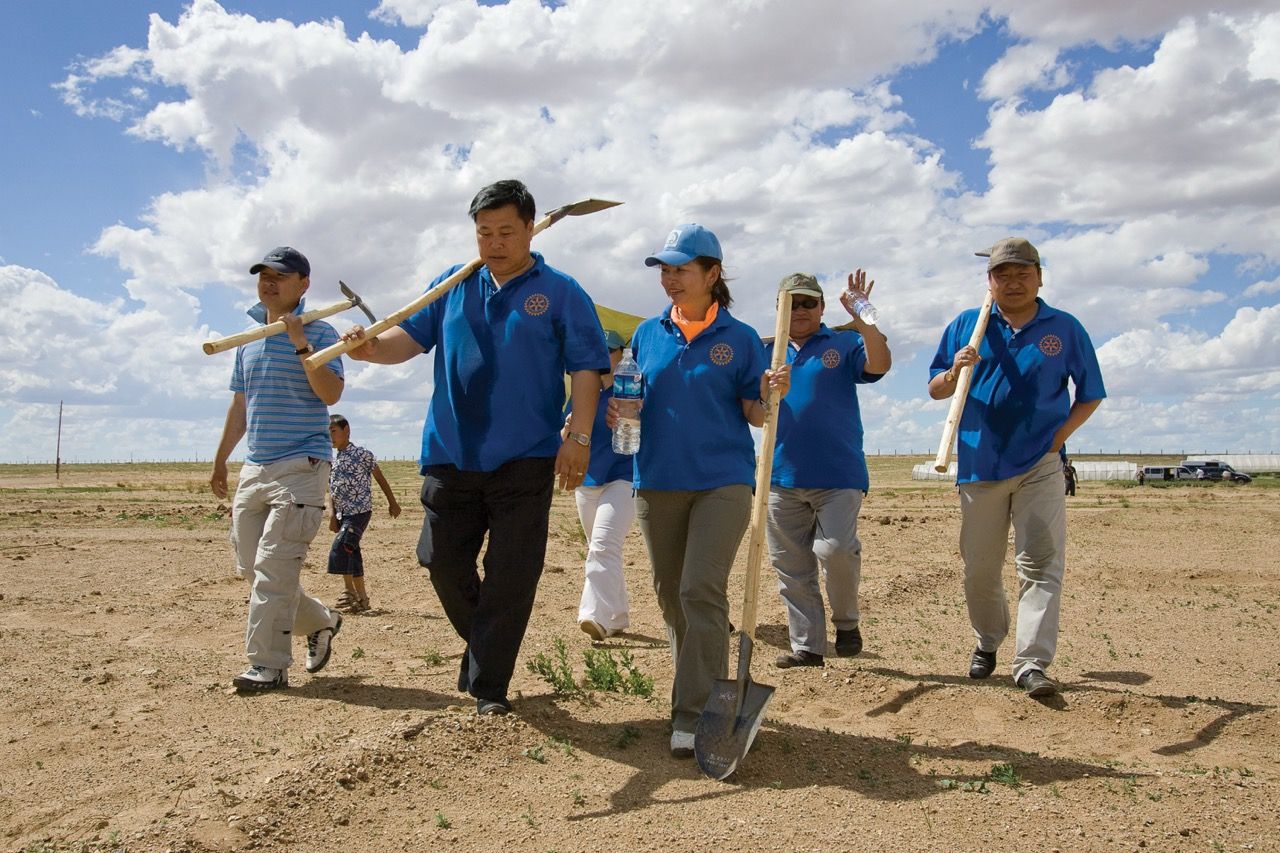
PROMOTING PEACE AND CONFLICT PREVENTION
Rotary supports the training, education, and practice of peace and conflict prevention and resolution by: - Training leaders, including potential youth leaders, to prevent and mediate conflict. - Supporting peace‐building in communities and regions affected by conflict. - Supporting studies for career‐minded professionals related to peace and conflict prevention/resolution.
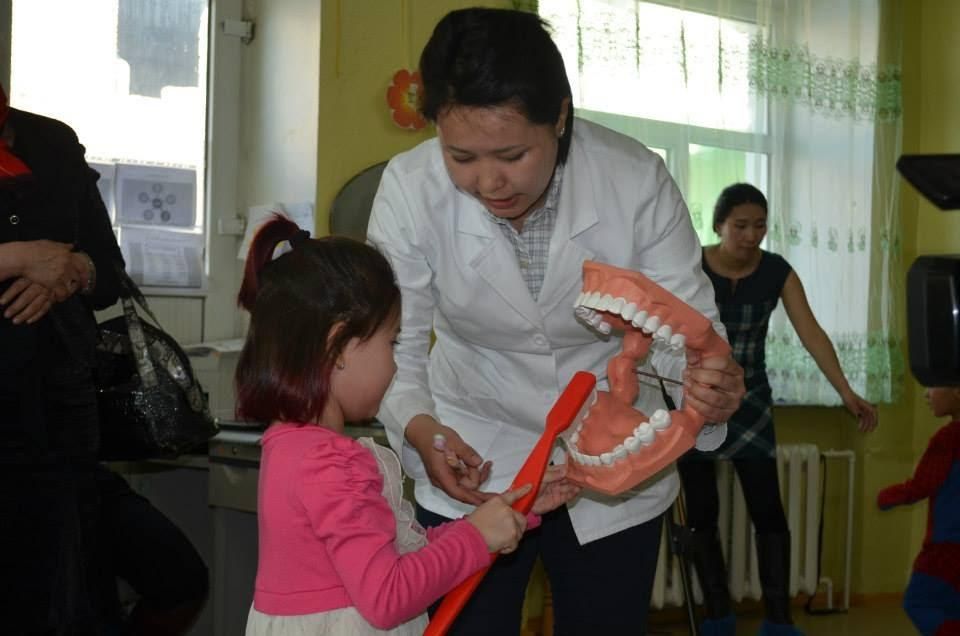
DISEASE PREVENTION AND TREATMENT
Rotary supports activities and training that reduce the cause and effect of disease by: - Improving the capacity of local health care professionals. - Promoting disease prevention programs, with the goal of limiting the spread of communicable diseases and reducing the incidences of and complications from non‐communicable diseases. - Enhancing the health infrastructure of local communities. - Educating and mobilizing communities to help prevent the spread of major diseases. Preventing physical disability resulting from disease or injury. - Supporting studies for career‐minded professionals related to disease prevention and treatment.

WATER AND SANITATION
Rotary supports activities and training to provide access to safe drinking water and basic sanitation by: - Providing equitable community access to safe water, improved sanitation and hygiene. - Strengthening the ability of communities to develop, fund and maintain sustainable water and sanitation systems. - Supporting programs that enhance communities’ awareness of the benefits of safe water, sanitation and hygiene. - Supporting studies for career‐minded professionals related to water and sanitation.
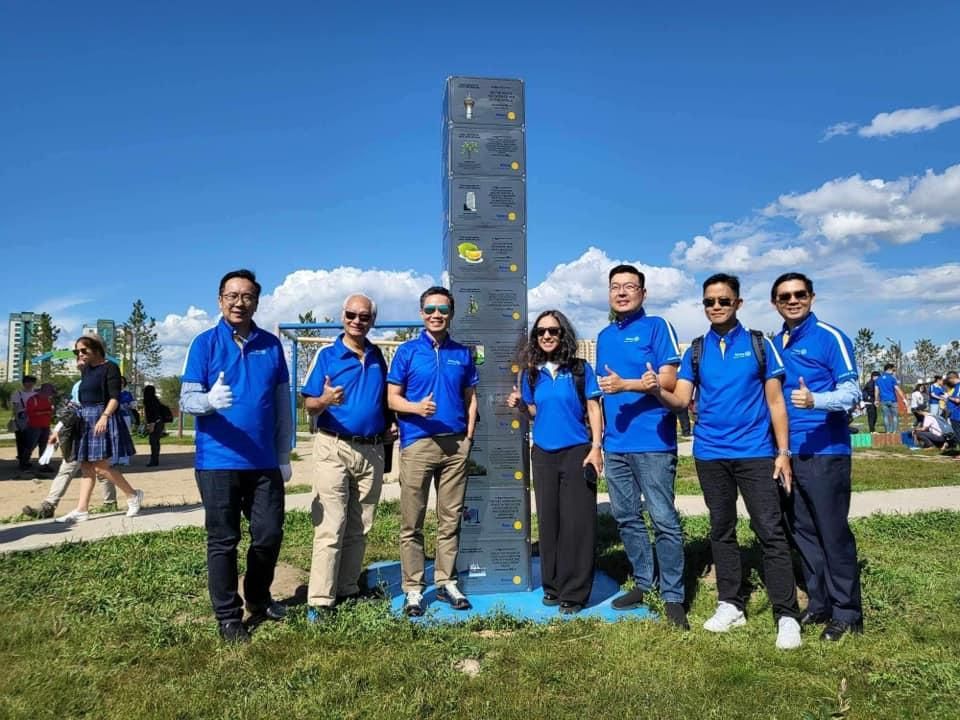
MATERNAL AND CHILD HEALTH
Rotary supports activities and training to improve maternal health and reduce child mortality for children under five by: - Reducing the mortality and morbidity rate for children under the age of five. Reducing the maternal mortality and morbidity rate. - Improving access to essential medical services, trained community health leaders and health care providers for mothers and their children. - Supporting studies for career‐minded professionals related to maternal and child health.
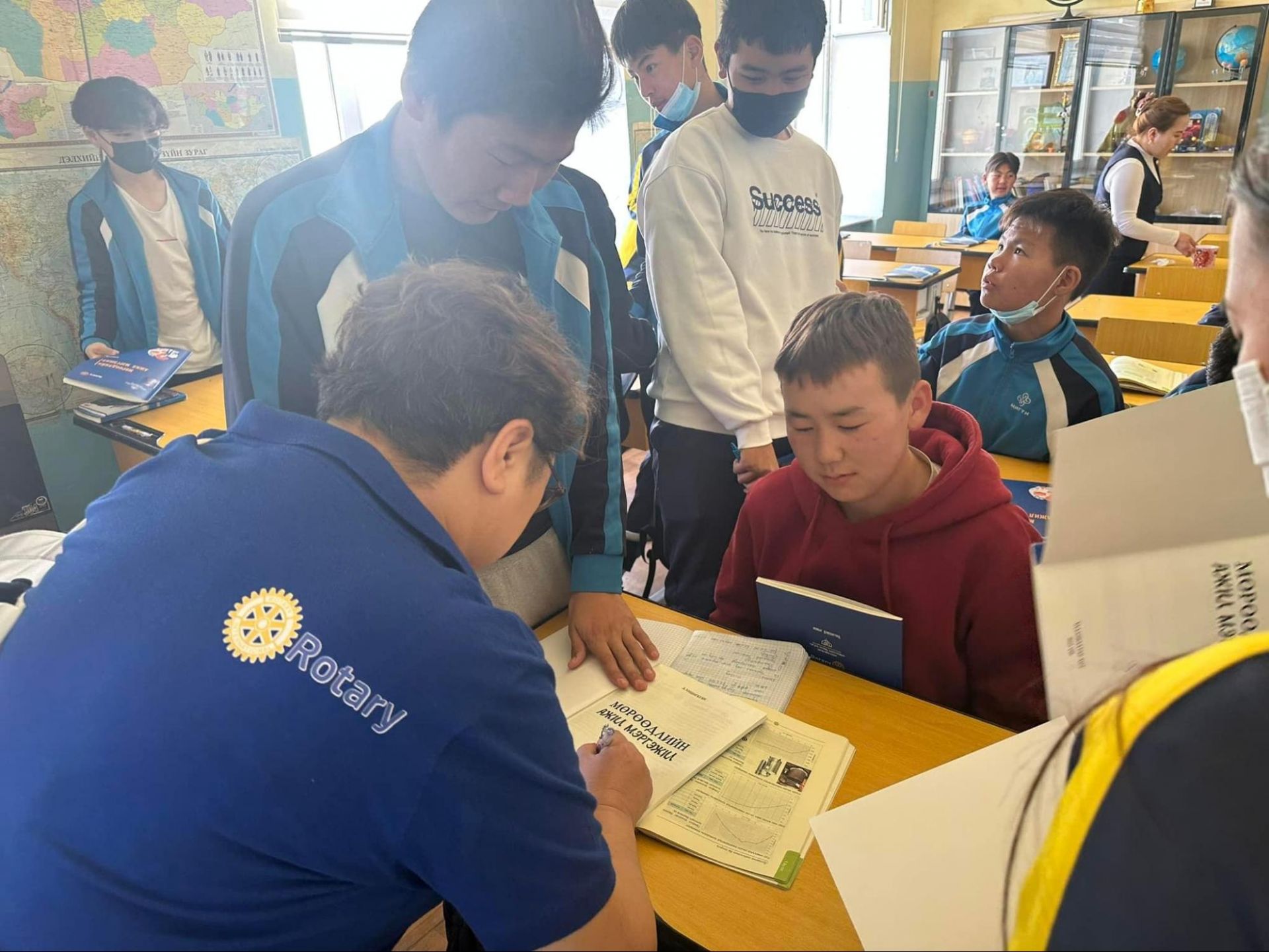
BASIC EDUCATION AND LITERACY
Rotary supports activities and training to improve education for all children and literacy for children and adults by: - Involving the community to support programs that strengthen the capacity of communities to provide basic education and literacy to all. - Increasing adult literacy in communities. Working to reduce gender disparity in education. - Supporting studies for career‐minded professionals related to basic education and literacy.

ECONOMIC AND COMMUNITY DEVELOPMENT
Rotary supports investments in people to create measurable and enduring economic improvement in their lives and communities by: - Building the capacity of entrepreneurs, community leaders, local organizations, and community networks to support economic development in impoverished communities. - Developing opportunities for productive work. - Reducing poverty in underserved communities. - Supporting studies for career‐minded professionals related to economic and community development.
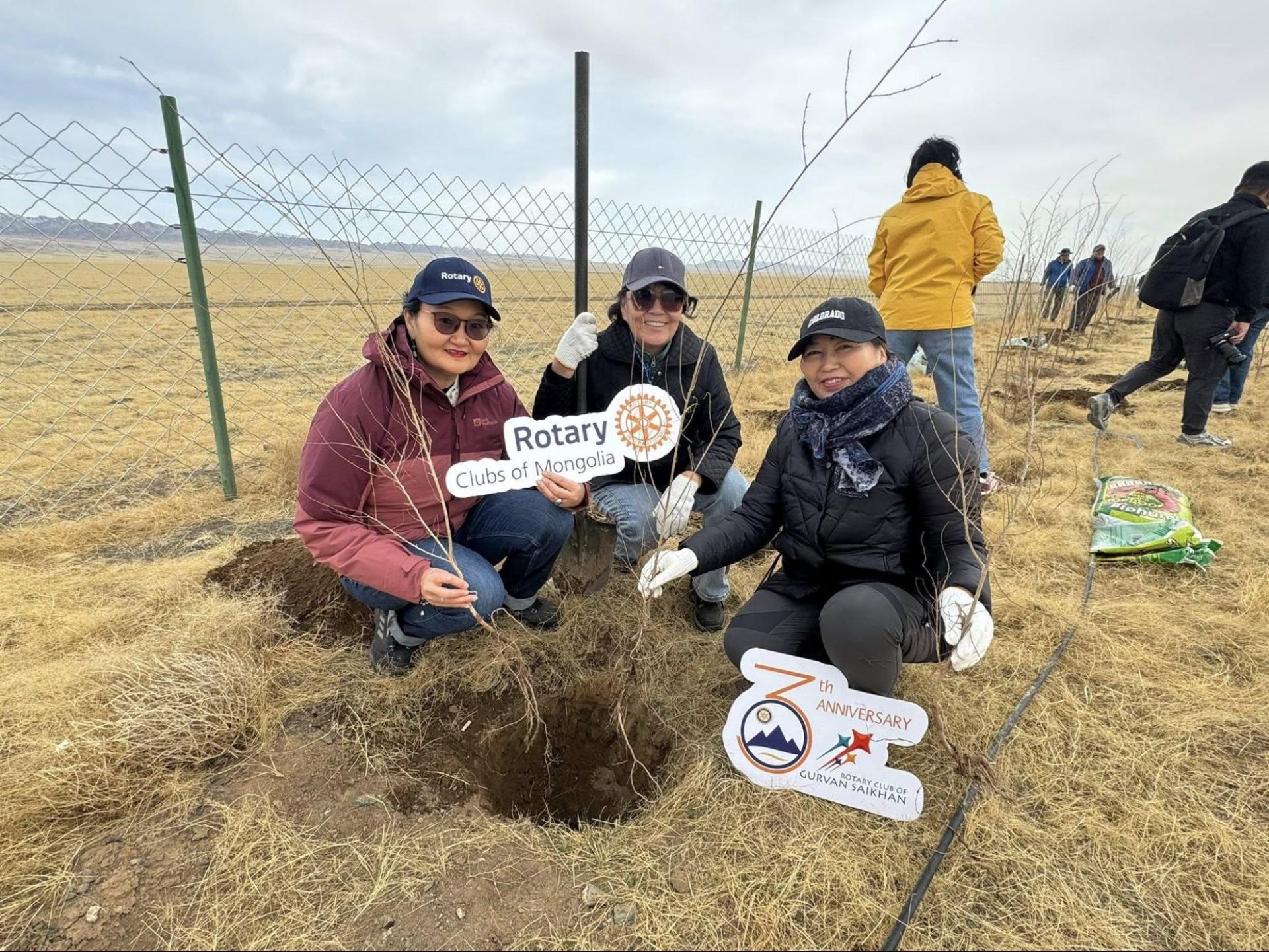
ENVIRONMENT
Rotary is committed to supporting activities that strengthen the conservation and protection of natural resources, advance ecological sustainability, and foster harmony between communities and the environment by: - Protecting and restoring land, coastal, marine, and freshwater resources. - Enhancing the capacity of communities to support natural resource management and conservation. - Supporting sustainable agriculture, fishing, and aquaculture practices. - Addressing the cause of climate change by reducing the emission of greenhouse gases. - Strengthening ecosystems and communities affected by climate change. - Supporting education initiatives that promote behaviour that protects the environment. - Advocating for sustainable consumption to build an economy that uses resources more efficiently. - Addressing environmental justice issues and public health concerns.



